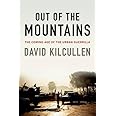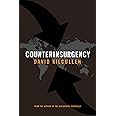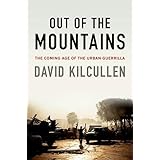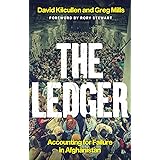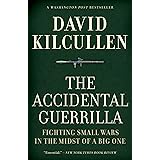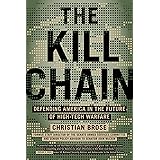
Enjoy fast, free delivery, exclusive deals, and award-winning movies & TV shows with Prime
Try Prime
and start saving today with fast, free delivery
Amazon Prime includes:
Fast, FREE Delivery is available to Prime members. To join, select "Try Amazon Prime and start saving today with Fast, FREE Delivery" below the Add to Cart button.
Amazon Prime members enjoy:- Cardmembers earn 5% Back at Amazon.com with a Prime Credit Card.
- Unlimited Free Two-Day Delivery
- Streaming of thousands of movies and TV shows with limited ads on Prime Video.
- A Kindle book to borrow for free each month - with no due dates
- Listen to over 2 million songs and hundreds of playlists
- Unlimited photo storage with anywhere access
Important: Your credit card will NOT be charged when you start your free trial or if you cancel during the trial period. If you're happy with Amazon Prime, do nothing. At the end of the free trial, your membership will automatically upgrade to a monthly membership.
Buy new:
-33% $20.23$20.23
Ships from: Amazon.com Sold by: Amazon.com
Save with Used - Like New
$17.34$17.34
Ships from: Amazon Sold by: DM Warehouses





Download the free Kindle app and start reading Kindle books instantly on your smartphone, tablet, or computer - no Kindle device required.
Read instantly on your browser with Kindle for Web.
Using your mobile phone camera - scan the code below and download the Kindle app.

OK
 Audible sample Sample
Audible sample Sample 


The Dragons and the Snakes: How the Rest Learned to Fight the West Illustrated Edition

Explore your book, then jump right back to where you left off with Page Flip.
View high quality images that let you zoom in to take a closer look.
Enjoy features only possible in digital – start reading right away, carry your library with you, adjust the font, create shareable notes and highlights, and more.
Discover additional details about the events, people, and places in your book, with Wikipedia integration.
Purchase options and add-ons
Just two decades ago, observers spoke of the US as a "hyperpower"--a nation with more relative power than any empire in history. Yet as early as 1993, CIA director James Woolsey pointed out that although Western powers had "slain a large dragon" by defeating the Soviet Union, they now faced a "bewildering variety of poisonous snakes." In The Dragons and the Snakes, the eminent soldier-scholar David Kilcullen asks how, and what, opponents of the West have learned during the last quarter-century of conflict. Applying a combination of evolutionary theory and detailed field observation, he explains what happened to the "snakes"--non-state threats including terrorists and guerrillas--and the "dragons"--state-based competitors such as Russia and China. He explores how enemies learn under conditions of conflict, and examines how Western dominance over a very particular, narrowly-defined form of warfare since the Cold War has created a fitness landscape that forces adversaries to adapt in ways that present serious new challenges to America and its allies. Within the world's contemporary conflict zones, state and non-state threats have increasingly come to resemble each other, with states adopting non-state techniques and non-state actors now able to access lethal weapon systems once only available to governments. A counterintuitive look at a vastly more complex conflict environment, this book both reshapes our understanding of the West's adversaries and shows how we can respond given the increasing limits on US power.
- ISBN-10019026568X
- ISBN-13978-0190265687
- EditionIllustrated
- PublisherOxford University Press
- Publication dateMarch 3, 2020
- LanguageEnglish
- Dimensions9.4 x 1.3 x 6.4 inches
- Print length336 pages
Frequently bought together
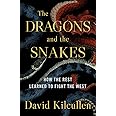
Similar items that may deliver to you quickly
From the Publisher



Editorial Reviews
Review
"Kilcullen is a welcome guide, offering a neat summation of how both nation-states and terrorist groups alike learned to cope with America's conventional military primacy... Kilcullen's approach offers readers accessible insights into what are complex and dynamic trends."--Diplomatic Courier"An impressive exposé on how terrorists and non-state actors outmanoeuvre conventional militaries... [Kilcullen] has a commanding view of a geopolitical landscape."
--Financial Times"Kilcullen argues persuasively that while the United States has been mired down in forever wars in Afghanistan and Iraq, our current and potential adversaries have gotten the jump on us. His book offers readers a skillfully annotated road map of contemporary conflict, describing in clear, measured prose how and why the days of American strategic and military preeminence are now behind us."--Daily Beast"Kilcullen's The Dragons and the Snakes is a timely invitation for the West to get its strategic house in order with some new thinking."--The Bridge"An incisive work that has deservedly garnered a great deal of attention and is likely to be of enduring importance in debates about the decline of Western power."--RealClearDefense"The Dragons and the Snakes is the best single piece out there-concise, well-written, and nuanced. It is both a timely introduction to the topic for the unfamiliar and a source of new discoveries and insights for the expert; an important book during changing times."--PRISM
"Thanks to Kilcullen's serious military experience, access to policymakers, thorough research, and eclectic academic interests, this Australian scholar has become one of the sharpest commentators on modern conflicts."--Foreign Affairs
Book Description
About the Author
Product details
- Publisher : Oxford University Press; Illustrated edition (March 3, 2020)
- Language : English
- Hardcover : 336 pages
- ISBN-10 : 019026568X
- ISBN-13 : 978-0190265687
- Item Weight : 1.35 pounds
- Dimensions : 9.4 x 1.3 x 6.4 inches
- Best Sellers Rank: #88,090 in Books (See Top 100 in Books)
- #33 in Military Policy (Books)
- #68 in Terrorism (Books)
- #86 in National & International Security (Books)
- Customer Reviews:
About the author

David Kilcullen is the award-winning author of Accidental Guerrilla (2009) and Counterinsurgency (2010) and now Out of the Mountains: The Coming Age of the Urban Guerrilla (2013).
His newest book takes us away from the remote, rural guerrilla warfare of Afghanistan, and into the marginalized slums and complex security threats of the world's coastal cities. Scrutinizing major environmental trends -- population growth, coastal urbanization, and increasing digital connectivity-- he projects a future of feral cities, urban systems under stress, and increasing overlaps between crime and war, internal and external threats, and the real and virtual worlds.
Dave is the Chief Executive Officer of Caerus Associates a strategic research and design firm that specializes in innovative, often counter-intuitive solutions to the world's hardest problems: economic development, violent conflict, humanitarian assistance, energy shortages and climate change. He is an advisor to NATO, and a consultant to the US and allied governments, international institutions, private sector companies and non-profit organizations seeking to make a difference in conflict and post-conflict environments and the developing world.
Before founding Caerus, Dave served 24 years as a soldier, diplomat and policy advisor for the Australian and United States governments. He was Special Advisor to the Secretary of State from 2007-2009 and Senior Advisor to General David Petraeus in Iraq in 2007. He has provided advice at the highest levels of the Bush and Obama administrations, and has worked in peace and stability operations, humanitarian relief and counterinsurgency environments in the Asia-Pacific, Middle East, South Asia and Africa. He is a well-known author, teacher and consultant, advising the U.S. and allied governments, international organizations, NGOs and the private sector.
Customer reviews
Customer Reviews, including Product Star Ratings help customers to learn more about the product and decide whether it is the right product for them.
To calculate the overall star rating and percentage breakdown by star, we don’t use a simple average. Instead, our system considers things like how recent a review is and if the reviewer bought the item on Amazon. It also analyzed reviews to verify trustworthiness.
Learn more how customers reviews work on Amazon-
Top reviews
Top reviews from the United States
There was a problem filtering reviews right now. Please try again later.
The book takes its name from a speech by CIA Director James Woolsey in 1993, where he called America’s state adversaries dragons and he called our non-state adversaries snakes. So the dragons are, mainly, Russia, China, Iran, and North Korea, and the snakes include the Taliban, Al Qaida, Hezbollah, and ISIS. Kilcullen does an amazing job of describing the military, economic, and political efforts by these dragons and snakes, mainly from the break up of the Soviet Union until 2019.
Kilcullen compares the evolution of dragons and snakes with biological evolution of species. Leaders and soldiers who use the worst tactics get killed. The best leaders and soldiers survive and are successful. When a state or non-state organization is being pressured by military confrontation, it changes and adapts to optimize its effectiveness with respect to its enemies. During more peaceful times, it evaluates itself and watches the technology advances of its enemies and changes and a slower, deliberate pace. Sometimes a snake like Al Qaeda achieves “catastrophic success.” This is a success that is so spectacular that it causes its enemies to launch a campaign to destroy it.
Russia sees itself as the rightful dominant power in Eastern Europe, and they only feel safe with a good buffer of allies between it and the West (NATO). When East Germany and West Germany were united, Russia felt they had a promise that NATO would not expand farther to the east, so they felt double-crossed when some of the former Warsaw Pact countries were allowed to join NATO.
Russia has been engaging in “liminal” confrontation. This reminds me of the “brinksmanship” that we talked about in the 60’s and 70’s. They take actions which are difficult to detect and when detected, difficult to assign responsibility. When responsibility can be assigned, the action perhaps did not reach the threshold that would cause the West to retaliate. They send troops into Crimea, they mass their troops at the border of Ukraine and Norway. They send Islamic migrants into Norway. They poison or imprison Russian dissidents.
In the early decades of the People’s Republic of China, they were a land power with minimal naval and air assets. A large role of the army was to keep domestic order. As they have expanded their trade and economic power, they have developed their navy and gone to a more lean army.
China sees itself as the “middle kingdom” and sees the United States as a danger. The U.S. bombed the Chinese embassy in Kosovo, and sent aircraft carrier groups through the Taiwan Straight. The first, the U.S. called a mistake. The second, the U.S. calls maintaining freedom of navigation. China sees them both as aggressive and sinister. China was also surprised by the way the U.S. crushed the Iraqi army in the first Gulf War. China uses its economic power to coerce many nations into doing their will in many areas. They have been rapidly modernizing their army, navy, and air force.
Another reviewer gave the book one star because it is not as good as Clausewitz or Sun Tzu and deals with the same ideas. Well it might be not as good, and it might deal with the same ideas, but Clausewitz and Sun Tzu did not write about how these ideas apply to our confrontations with Russia, China, North Korea, Iran, and the Islamist terrorists.
Kilcullen thinks that the U.S. and its allies have been dominant from the break-up of the Soviet Union until 2003, and since then their dominance has faded. He thinks the U.S. could be overtaken the way other great powers in history have been overtaken. He suggests several ways that the U.S. could proceed. His favorite is to follow the pattern of the Byzantine Empire. The idea is to use allies, keep enemies off balance, and avoid major wars.
The book argues that the First Gulf War in 1991 marked the apex of the American way of war. Both the Dragons and the Snakes, which the U.S. now face looked at that war and learned the lesson not to fight the U.S. that way.
The book explores the ways Al-Qaeda, ISIS, and others have adapted. One of the author's interesting observations is that by killing off the leaders of these groups, more competent leaders have arisen to control these Snakes. Unintended consequences, indeed.
The Dragons are China and Russia. If the competitive threat posed by China is perhaps only a dim concern now, read Chapter 5 for an eye-opening review of the range of challenges presented by China. One conceptual challenge is that China defines war much more broadly than the U.S. has traditionally done. China's manufacture and shipment of tons of fentanyl to the U.S. may be a reverse Opium War by China against the U.S. The full scope of the Chinese threat is impressive.
The book argues that Russia has largely rebounded from the collapse of the Soviet Union at least militarily. It has also adopted some of the Snakes' methods for fighting the West. Liminal warfare (doing just enough to gain an edge, but not enough to provoke an effective response) and escalating to de-escalate are strategies employed by Russia that the book explores.
Of most importance is the book's final chapter where the author examines possible approaches to manage the U.S. and Western decline. Perhaps the Byzantine empire's management of its varying fortunes across a 1000 years may offer lessons for today.
The author reviews the historical context for the adaptations forced by warfare over the last 30 years. He also does this utilizing intellectual tools which I found highly useful. His conclusions aren't reassuring. If the effect of war on the means and methods of waging war and the decline of U.S. effectiveness in doing so interest you, I recommend the book highly.
Most books on current military trends focus on technology--Russian and Chinese cyber, space, and missile capabilities usually take top billing. The value in Kilcullen's book is that he takes a step back and examines how these adversaries actually think about conflict with the United States (noting that they see this as having already begun in the information space), and how they are seeking to adapt and undermine US conventional strengths and not simply to surpass them with better technology. This is a key distinction that too often goes unnoticed by the armies of defense experts who seem myopically focused on the latest piece of flashy, high-speed kit.
Top reviews from other countries
Out of the cold war
The Dragon and The Snakes starts with what shaped the modern world. The modern world was shaped out of the cold war. Western doctrine was defined by meeting a numerically superior force with superior technology. At the time, China and Russia were in dispute over a number of issues. At the chime of Chairman Mao, the death of Stalin and changing posture of the Soviet Union led to a fissure that widened over time. In the cold war was not only a war for influence between capitalism and communism; but also evolved into a war between Soviet communism and Maoist communism. China and Russia both supplied North Vietnam, but China invaded Vietnam partly due to it being more in the Soviet camp than the Chinese camp (this is is somewhat simplifying a multi-causal conflict, but has a truth in it).
China and US had limited cooperation with regards Russia which was brought in by Nixon’s famous visit to China and the machinations of Henry Kissinger who believed in systems and the ends justifying the means.
The flat topography of Kuwait and Iraq, together the latest 1980s weapons systems from the cold war made the first gulf war quick and provided an eye-raising demonstration of modern warfare. The campaign was just 42 days long.
Pivotal moments of change
Kilcullen goes on to discuss pivotal moments of change for both Russia and China in The Dragon and The Snakes.
- The first gulf war
- Kosovo
- Russian invasion of Georgia.
- Afghanistan, Iraq. Afghanistan reinforced views in Russia and China that the west was in an accelerating slope of decline.
- Ukraine and Syria.
Wider parameters of war
Kilcullen highlights the way hacking, espionage, propaganda, weaponised diaspora, elite capture online crime, organised crime, misinformation, bribery, soft power, sharp power and private military operators mean that we are in a war that western leaders currently refuse to acknowledge. This then further emboldens Russia, China and the likes of Iran and North Korea. It felt strangely prescient that I was reading the book when MI5 issued a security warning about Christine Lee and Russia threatened to invade Ukraine.
Byzantine outlook
Disturbingly in The Dragon and The Snakes, Kilcullen thinks that the best way that the west can handle China and Russia is learning from the Byzantine empire’s ability to forestall collapse. This implies a few things:
He doesn’t believe that the west can find its way to effectively combatting China or Russia
He doesn’t believe that western systems of governance will survive
He believes that dragon and the snakes have more durable and effective systems of governance and war
All of which indicates an increasingly dark dystopian future.
In The Dragons and The Snakes Kilcullen provides a cogent well-researched and written picture of our current situation. If his work scares the crap out of enough people, we may even get answers to the multitude of problems that he outlines.
Reviewed in India on September 1, 2021







